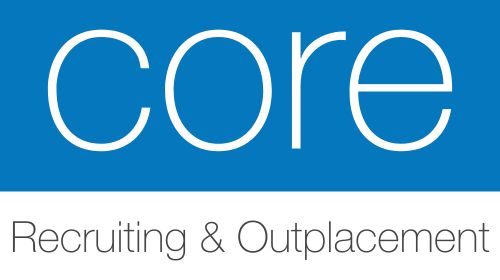
Gefälschte Banknoten Kaufen
FollowOverview
-
Founded Date August 22, 1923
-
Sectors IT and Digital
Company Description
The Reasons Why Buy Euro Counterfeit Money Has Become Everyone’s Obsession In 2024
Navigating the Shadows: The Risks and Realities of Buying Euro Counterfeit Money

In a significantly digital world, where financial deals accompany a click of a button, the allure of counterfeit currency has actually persisted. Among the currencies that bring in counterfeiters, the Euro sticks out due to its prevalent usage throughout numerous European countries. This short article explores the murky waters of buying counterfeit Euro money, the inspirations behind it, the risks involved, and the legal consequences of taking part in such activities.
Understanding Counterfeit Currency
Counterfeit currency refers to fake banknotes or coins produced with the intent to deceive and used as if they were legal tender. The Euro, as the official currency of 19 of the 27 European Union countries, is incredibly complex, integrating innovative security functions that make counterfeiting tough. Nevertheless, the high need for Euros and the large number of banknotes in flow create chances for counterfeiters to exploit.
Why People Consider Buying Counterfeit Euros
There are a variety of reasons that people might be lured to buy counterfeit money, consisting of:
-
Financial Gain: Some think they can make money from using counterfeit money, whether to buy items at a lower rate or to resell counterfeit products for real money.
-
Anonymity: The relative anonymity of fäLschungen online bestellen; Mediascatter.com, deals may entice people, making them feel shielded from legal repercussions.
-
Desperation: In times of financial difficulty, some may see counterfeit currency as a quick fix for their monetary troubles.
-
Interest and Pranks: A little number might be encouraged by novelty, curiosity, or the objective to prank friends or family members.
The Risks of Buying Counterfeit Euro Money
While the principle of buying counterfeit Euro money might appear enticing, the reality is stuffed with significant dangers. A few of the most pressing dangers consist of:
1. Legal Ramifications
Counterfeiting is unlawful in the majority of jurisdictions, including all European Union member states. Participating in counterfeiting activities can result in extreme punishments, including big fines and jail time. According to EU law, the charges for producing or distributing counterfeit currency can differ by country however typically consist of severe criminal charges.
2. Financial Losses
Buying counterfeit money is a gamble. There is no warranty that the currency will be accepted, and if spotted, the purchaser could lose both their financial investment and face legal consequences. Furthermore, counterfeit banknotes can be difficult to spot, leading to monetary losses when trying to use them.
3. Ethical Implications
Utilizing counterfeit currency weakens the integrity of the monetary system. It impacts genuine businesses, consumers, and the total economy. The expenses connected with counterfeiting are often passed onto customers, driving costs up and wearing down rely on financial systems.
4. Online Scams
Lots of people interested in counterfeit currencies frequently turn to the internet to discover sellers. However, numerous rip-offs target unwary purchasers. These rip-offs may involve fraudulent websites or individuals impersonating genuine sellers, resulting in a loss of money without getting any item.
Secret Considerations for Individuals
For anyone contemplating the purchase of counterfeit Euro money, several factors to consider must be considered:
-
Research: Understanding the legal implications and the risks related to counterfeiting can offer clarity on the gravity of the situation.
-
Understand Security Features: Genuine Euro banknotes come equipped with sophisticated security functions implied to make counterfeiting exceptionally challenging. Familiarity with these features can assist in recognizing counterfeit notes if they enter into one’s ownership.
-
Seek Legal Avenues: Instead of turning to prohibited activities, people facing financial concerns must explore lawful options such as personal budgeting, loans, or neighborhood assistance programs.
Typical Frequently Asked Questions (FAQs)
1. What are the legal consequences of using counterfeit money?
Using counterfeit money can result in criminal charges, including fines and imprisonment. The severity depends on the quantity included and the jurisdiction.
2. How can I recognize counterfeit Euro notes?
Real Euro banknotes have numerous security features, including watermarks, security threads, microprinting, and color-changing ink. Consulting the main European Central Bank resources can provide guidance on determining real banknotes.
3. Can I unwittingly receive counterfeit currency?
Yes, it is possible to get counterfeit notes without knowing it. It is vital to inspect banknotes carefully, especially when withdrawing cash or making purchases in locations where counterfeit money might flow.
4. What should I do if I think I have gotten counterfeit money?

If you think you have received counterfeit currency, avoid attempting to use it. Report the scenario to local law enforcement or your bank, who can appropriately deal with the matter.
The desire to buy counterfeit Euro money is often driven by monetary desperation, curiosity, or the attraction of quick gains. However, the legal, financial, and ethical implications of such actions render it a perilous undertaking. Rather of running the risk of severe charges, people dealing with monetary challenges are prompted to seek alternative options through legal channels. Understanding the complexities of counterfeit currency and acknowledging the associated dangers is essential for making notified choices. Eventually, the world of counterfeit money is one best avoided, as the effects can have enduring implications on an individual’s life and wellness.
